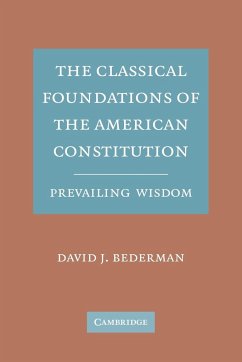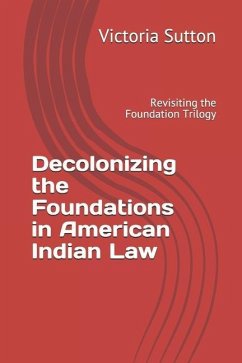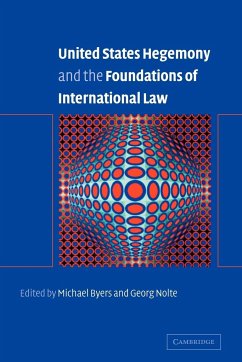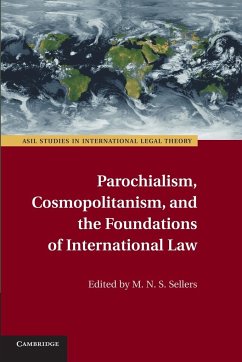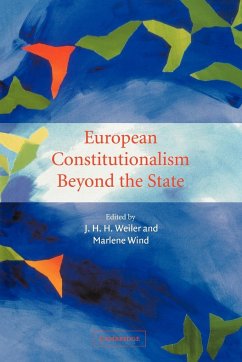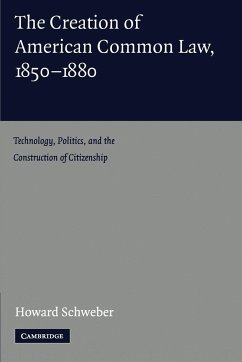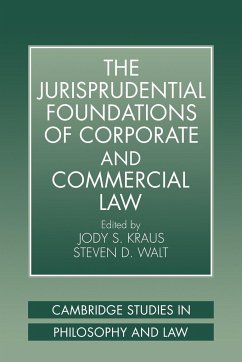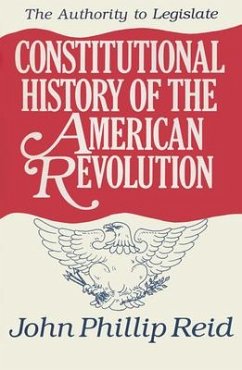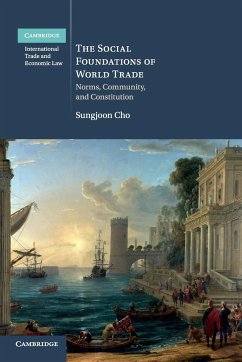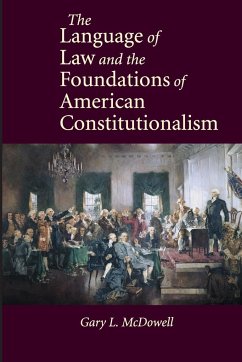
The Language of Law and the Foundations of American Constitutionalism
Versandkostenfrei!
Versandfertig in 1-2 Wochen
83,99 €
inkl. MwSt.
Weitere Ausgaben:

PAYBACK Punkte
42 °P sammeln!
For much of its history, the interpretation of the United States Constitution presupposed judges seeking the meaning of the text and the original intentions behind that text, a process that was deemed by Chief Justice John Marshall to be 'the most sacred rule of interpretation'. Since the end of the nineteenth century, a radically new understanding has developed in which the moral intuition of the judges is allowed to supplant the Constitution's original meaning as the foundation of interpretation. The Founders' Constitution of fixed and permanent meaning has been replaced by the idea of a 'li...
For much of its history, the interpretation of the United States Constitution presupposed judges seeking the meaning of the text and the original intentions behind that text, a process that was deemed by Chief Justice John Marshall to be 'the most sacred rule of interpretation'. Since the end of the nineteenth century, a radically new understanding has developed in which the moral intuition of the judges is allowed to supplant the Constitution's original meaning as the foundation of interpretation. The Founders' Constitution of fixed and permanent meaning has been replaced by the idea of a 'living' or evolving constitution. Gary L. McDowell refutes this new understanding, recovering the theoretical grounds of the original Constitution as understood by those who framed and ratified it. It was, he argues, the intention of the Founders that the judiciary must be bound by the original meaning of the Constitution when interpreting it.





